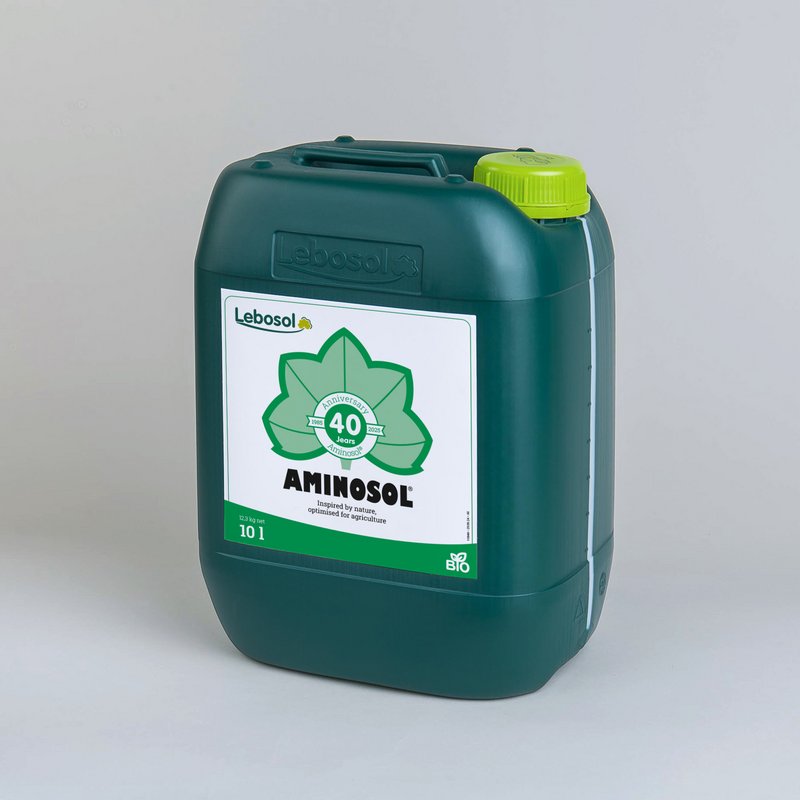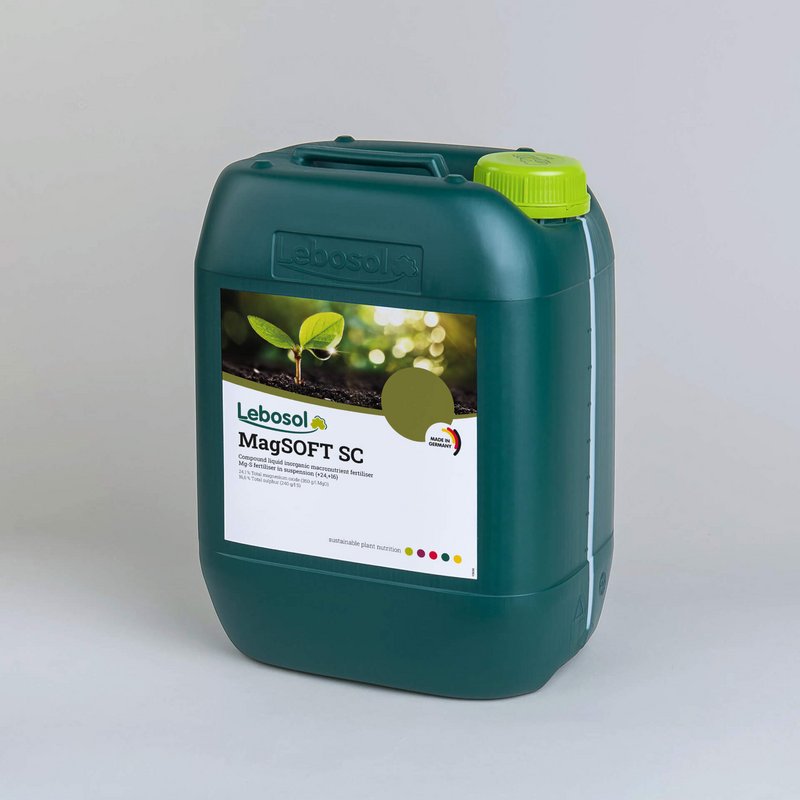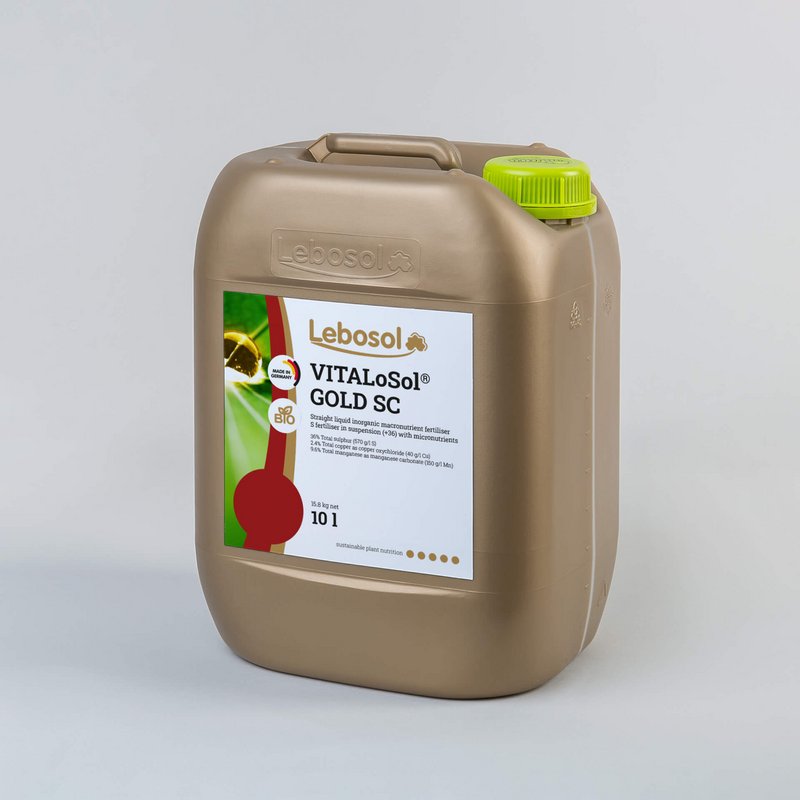Foliar fertilisation in asparagus crops
Sustainable nutrient supply for optimum asparagus development
Foliar fertilisation plays a decisive role in asparagus cultivation, as it supports the storage of reserve substances in the asparagus root and thus creates the conditions for a good harvest the following year. Challenges such as strong radiation and drought require adapted crop management. An extended vegetation period in autumn can have a positive effect on the formation of reserve carbohydrates, provided that sufficient nutrients are available. Only evenly and well nourished asparagus plants can fully utilise their yield potential. Foliar fertiliser ensures an effective and rapid supply of nutrients, even in unfavourable weather conditions.
Asparagus occupies a special position as a perennial crop. For economically successful cultivation, it is important that the plants regenerate optimally after cutting. Healthy foliage enables the formation of new reserves. In addition to a sufficient supply of water, fertilisation is crucial to meet the high nutrient requirements.
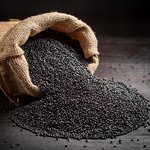
Seed treatment for asparagus
How can root growth be optimally supported?
A strong start is just as essential for asparagus as for other crops. A strong root system is crucial for efficient water and nutrient uptake. A seed treatment enriched with essential nutrients supports and promotes root growth, which contributes to rapid plant establishment and better adaptability to changing environmental conditions.
For optimised youth development of asparagus, a 2% solution of Avitar® is recommended when treating seedlings. Avitar® has proven to be a highly effective product and supports the plants in the critical early stages of development, leading to higher yields and healthy crops in the long term.
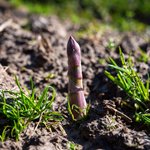
Efficient weed control in asparagus crops
Improvement of the herbicide effect and stress reduction
For effective weed control in asparagus cultivation, Herbosol® offers an optimised solution as an additive to increase the herbicide effect. This additive not only increases the effectiveness of soil herbicides, but also improves their compatibility. Herbosol® reduces drift, ensures better adhesion of the active ingredients to the topsoil and ensures a more stable effect in dry conditions. The improved adhesion enables a more even distribution of the herbicides, which increases the herbicide performance.
The recommended dosage of Herbosol® varies depending on the soil type: for heavy soil with a high humus content we recommend 0.2 l/ha, for light soil with a low humus content 0.6 l/ha, while the general application concentration is 0.4 l/ha.
Aminosol® is also recommended to support the asparagus plants in critical phases. An application of 2 – 3 litres/ha of Aminosol® strengthens stress tolerance, promotes plant vitality and improves the effectiveness and tolerance of foliar herbicides. This contributes to rapid plant regeneration.
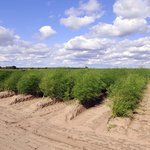
Foliar fertilisation to prevent nutrient deficiencies in asparagus cultivation
Effective measures against magnesium and sulphur deficiency
Magnesium promotes phosphorus uptake and ensures healthy green leaves. Sulphur supports the effective use of nitrogen and stabilises yield and quality.
To compensate for nutrient deficiencies in asparagus cultivation, foliar fertilisation is essential, especially on sandy, slightly acidic soils and/or soils with a high potassium content. In cold and wet conditions, magnesium deficiency can occur, which is characterised by yellow phylocladia. Foliar treatments prevent this deficiency. As sulphur is also often undersupplied, the combined use of magnesium and sulphur via Lebosol®-MagSOFT SC is recommended.
An application of 2 – 3 times with 3 – 5 litres/ha Lebosol®-MagSOFT SC from the length growth improves the photosynthetic performance, the formation of reserves and the N-efficiency.
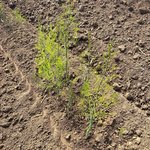
VITALoSol® GOLD SC for asparagus
The nutrient triad of sulphur, copper and manganese
VITALoSol® GOLD SC from our GOLD series offers a highly effective nutrient supply for asparagus cultivation with 36% elemental sulphur (570 g/l S), 2.4% copper as copper oxychloride (40 g/l Cu) and 9.6% manganese as manganese carbonate (150 g/l Mn). This special formulation ensures a comprehensive supply of nutrients to the asparagus. The application of sulphur, copper and manganese supports and improves nitrogen utilisation, maximises the efficiency of nitrogen uptake and thus helps to stabilise yields. Due to the balanced nutrient supply, the plants develop robustly and vigorously, which increases their resistance to stress.
An application of 2 – 3 times with 3 – 5 l/ha VITALoSol® GOLD SC is recommended to revitalise, strengthen stress tolerance and improve N efficiency.
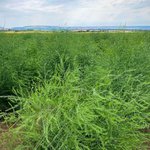
Continuous boron supply for asparagus
Avoidance of yield losses due to boron deficiency
A continuous supply of boron to the asparagus plants throughout the season is of crucial importance. A lack of this element quickly leads to reduced nutrient uptake (phosphorus and potassium) or a deterioration in spear quality. Boron deficiency in particular can have a significant impact and lead to hollow stems, which in some years means a loss of up to 20% of marketable produce. To avoid such losses, a good boron supply is essential.
The use of Lebosol®-AqueBoron SC 150 is recommended from the length growth stage with a dosage of 2 – 3 times at 2 litres/ha.

Silicon: an important factor for asparagus cultivation
How does silicon support asparagus plants?
Although silicon is not a classic nutrient, it plays a crucial role in regulating the water balance of plants. It promotes root formation and therefore phosphorus and calcium uptake, which contributes to a better nutrient supply. Silicon also considerably strengthens the stress tolerance of plants.
Lebosol®-Silicon contributes to the reduction of drought stress, increases stem stability and promotes general stress tolerance. The recommended application is 2 – 3 times 0.5 – 1 litre/ha.



